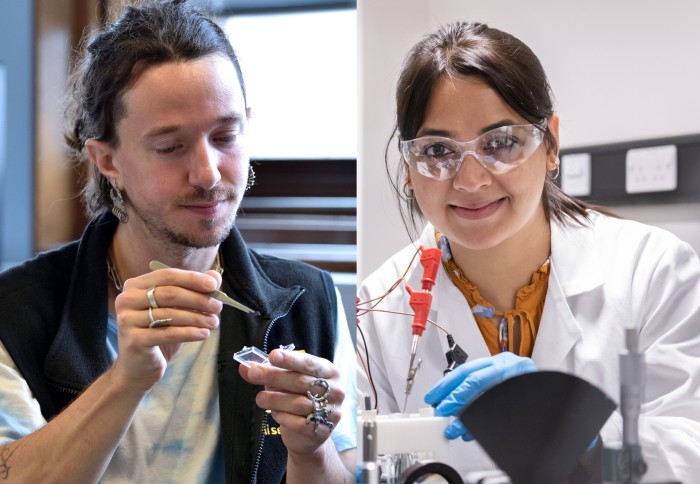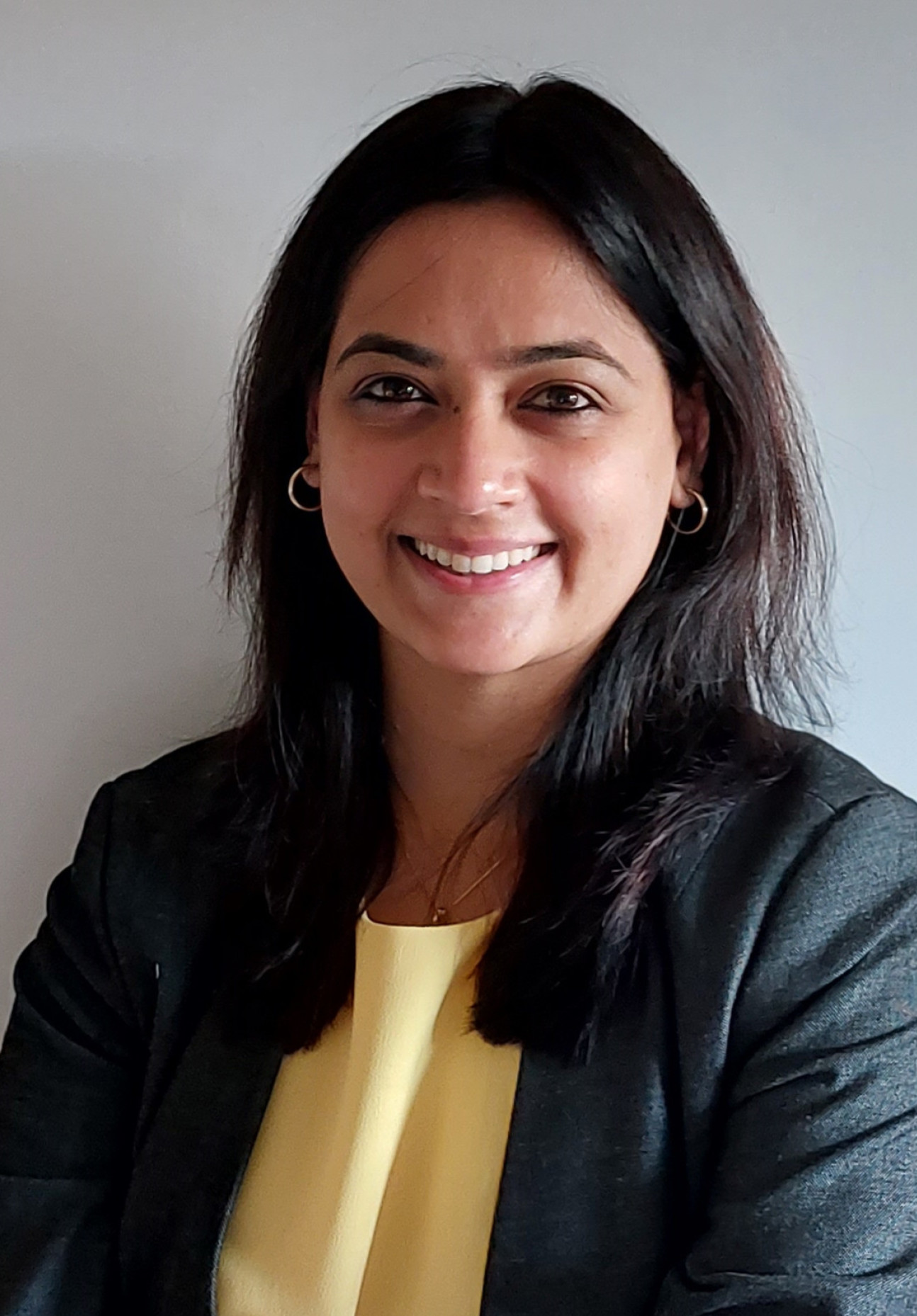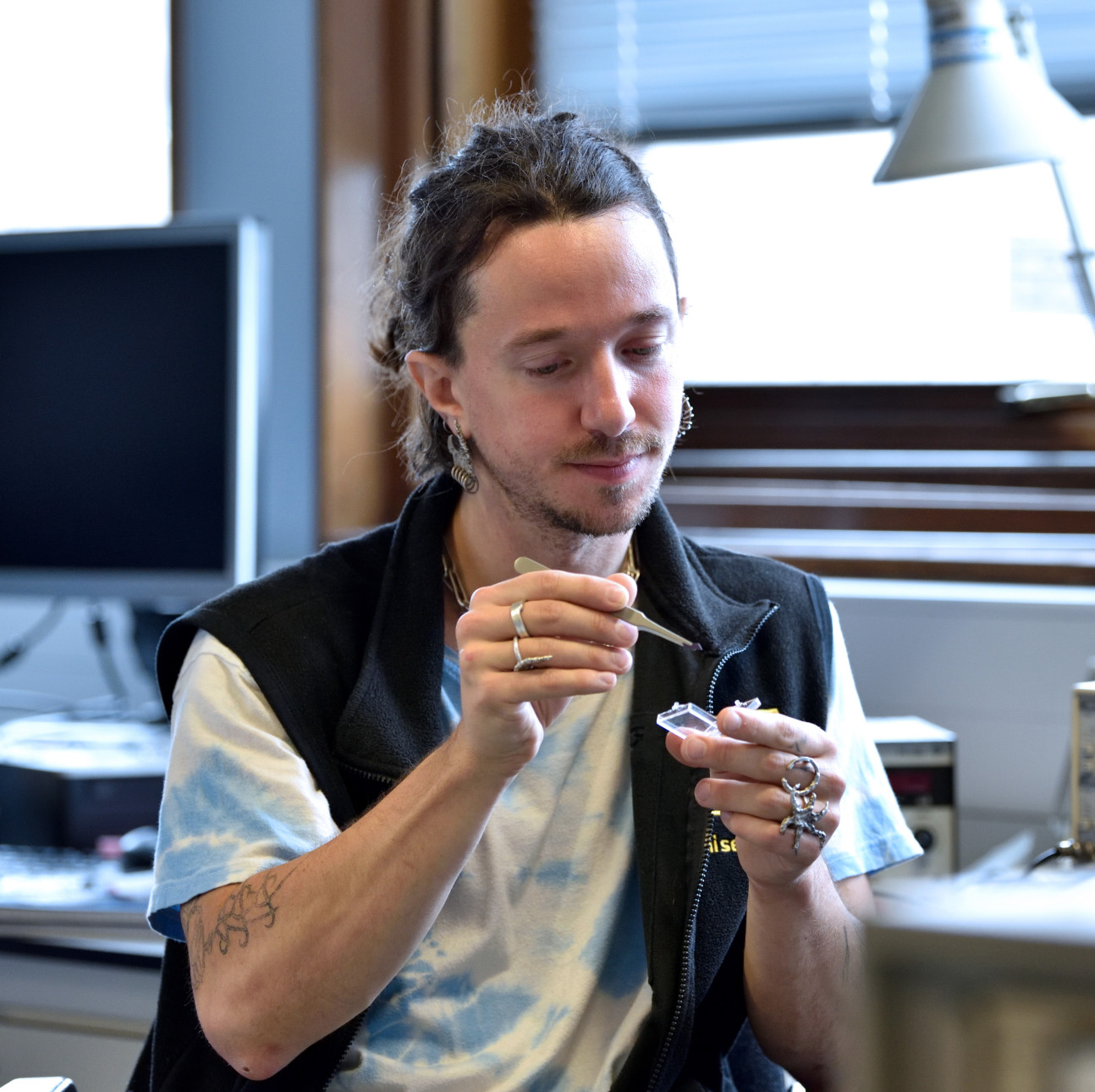Two Imperial academics awarded Royal Academy of Engineering Research Fellowships

Researchers working on water-splitting catalysts for hydrogen fuels and magnetic computing for more efficient AI have received fellowship funding.
Dr Reshma Rao and Dr Jack Gartside have each received one of 17 Royal Academy of Engineering Research Fellowships for 2022. The programme supports outstanding early-career researchers to become future research leaders in engineering.
The fellowships are designed to advance excellence in engineering by providing funding for five years to allow awardees the freedom to concentrate on basic research in any field of engineering. This year the value of the awards has been increased to offer up to £625,000 over five years.
Dr Reshma Rao, Departments of Materials
 Dr Rao has been awarded for her project ‘Seeing the invisible – probing hydrogen production from low-grade water’. Her work concerns developing catalytic materials for splitting water – a first crucial step in creating green hydrogen fuels.
Dr Rao has been awarded for her project ‘Seeing the invisible – probing hydrogen production from low-grade water’. Her work concerns developing catalytic materials for splitting water – a first crucial step in creating green hydrogen fuels.
Using spectroscopic techniques, she investigates the molecular details of the water-splitting reactions on various materials. Using this information to determine which steps limit the efficiency of such reactions in a range of conditions could lead to new ways to improve the activity, stability, and selectivity of materials for green hydrogen production from contaminated or low-grade water..
On receiving the Fellowship, she said: “I am delighted to have this unique opportunity to further my research vision for green hydrogen production. I am truly blessed to be working in this wonderful environment at Imperial College, which is so innovative, collaborative, and supportive.”
Dr Jack Gartside, Department of Physics
 Dr Gartside has been awarded for his project ‘Engineering magnonic metamaterials for low-energy neuromorphic computing’. His work uses miniature ‘nano’ magnets to process and store data, acting as computers that mimic brain networks.
Dr Gartside has been awarded for his project ‘Engineering magnonic metamaterials for low-energy neuromorphic computing’. His work uses miniature ‘nano’ magnets to process and store data, acting as computers that mimic brain networks.
Dr Gartside and colleagues recently demonstrated that it is possible to perform artificial intelligence using these nanomagnetic systems, which could slash the energy costs of AI. The team showed nanomagnets can be used for ‘time-series prediction’ tasks, such as predicting and regulating insulin levels in diabetic patients.
On receiving the Fellowship, he said: “It’s great to have the support of the Royal Academy of Engineering and Imperial College London to work on this pressing global societal issue. Lowering the energy and carbon footprints of AI is a huge task and I’m excited to be working on it.”
Article text (excluding photos or graphics) © Imperial College London.
Photos and graphics subject to third party copyright used with permission or © Imperial College London.
Reporter
Hayley Dunning
Communications Division